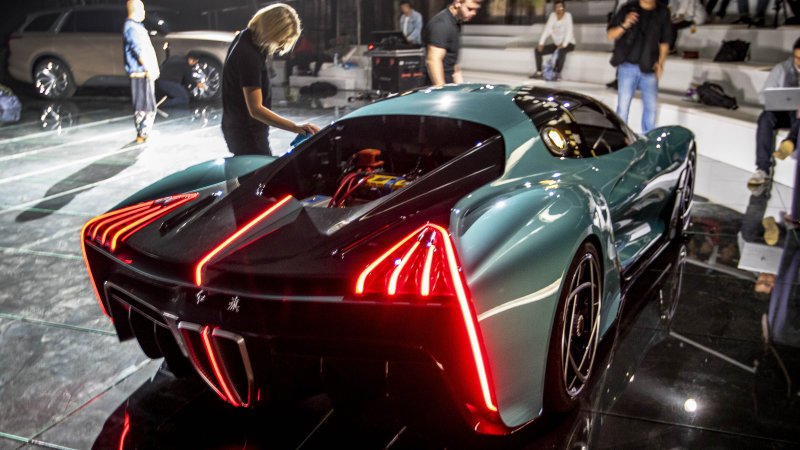Chinese firms out in force at Frankfurt Motor Show

Chinese suppliers and manufacturers have stepped up their presence at the Frankfurt Motor Show, capitalizing on a shift toward electric cars forced on German carmakers by regulators seeking to curb pollution.
Though the number of exhibitors has fallen to 800 in 2019 from 994 in 2017, Chinese automakers and suppliers now make up the biggest foreign contingent, with 79 companies, up from 73.
Several European and Japanese carmakers including Fiat, Alfa Romeo, Nissan, Toyota and Peugeot, have skipped the show as the industry seeks cost savings.
Automakers face multi-billion euro investments to develop electric and autonomous cars.
But China's bigger presence is also due to Europe's lack of expertise in lithium ion battery cell production, an area where Asian suppliers dominate.
German firms are striking major deals with Chinese suppliers to help them meet stringent anti-pollution rules, which were introduced in the wake of Volkswagen's 2015 emissions cheating scandal.
"All carmakers face the challenge that they will have to fulfil fleet consumption targets," Matthias Zentgraf, regional president for Europe at China's Contemporary Amperex Technology (CATL), told Reuters.
Zentgraf said he expected further supply deals to be struck in Europe this year following agreements with BMW and Volkswagen.
Daimler on Wednesday said it had chosen China-backed Farasis Energy to supply battery cells for its Mercedes-Benz electrification push.
Farasis is building a 600 million euro ($663 million) factory in East Germany, close to where Chinese rival CATL is erecting a 1.8 billion euro battery plant.
SVOLT Energy Technology, which was carved out of China's Great Wall Motor Co, told Reuters it will start building battery cells in Europe at a new 2 billion euro plant in 2023.
German carmakers have been forced to accelerate electrification plans after European Union lawmakers imposed a 37.5% cut in carbon dioxide emissions between 2021 and 2030 in addition to a 40% cut in emissions between 2007 and 2021.
Electric cars made up only 1.5% of global sales last year, or 1.26 million of the 86 million passenger vehicles sold, JATO Dynamics said.
If carmakers fail to meet the 2021 targets they face 33 billion euros in fines, analysts at Evercore ISI have estimated.
They estimate it will cost the auto industry an aggregate 15.3 billion euros to comply, assuming a 60 euro cost per gram to reduce CO2 emissions for premium carmakers and 40 euros per gram of CO2 reduction for volume manufacturers.
Nouvelles connexes


